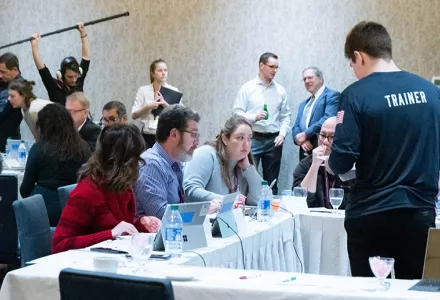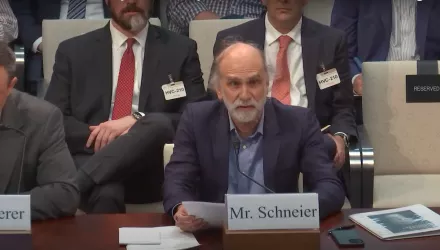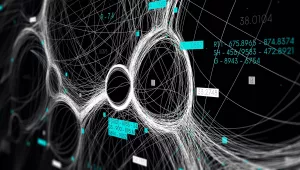
Between concerted influence operations by those who sought to undermine the election and the immense challenges of voting in person and by mail amid a public health crisis, the November 2020 elections posed enormous challenges. Exacerbating the difficulty was a lack of public awareness of how these disruptive conditions affected the tempo of Election Night, the time it took to tabulate ballots, and the delay in declaring results.
All of these factors made it easier for agents of disinformation to cast doubt on the legitimacy of the election process and results – before, during, and after election day. Working to thwart them, however, was an army of well-trained election officials. Much of their training was carried out by the Belfer Center’s Defending Digital Democracy Project (D3P).
Originally launched in 2017 by Belfer Center Co-Director Eric Rosenbach together with campaign managers Robby Mook and Matt Rhoades, D3P has provided resources, recommendations, and training to state election officials, campaign managers, journalists, and the general public as part of its overall mission to help safeguard the integrity of democratic elections from cyber and information attacks.
Over this past year alone, D3P has engaged close to 900 election officials across the country, briefing them on ways to counter evolving threats. This training tour was made possible only because of countless hours of support provided by a dedicated team of HKS students.
To supplement this training, D3P also published a definitive guidebook, “The Elections Influence Operations Playbook.” This Playbook provided an introduction to Election Influence Operations: what they are, how they work, and why they can impact our elections. It also includes recommendations for reporting, responding and countering mis and disinformation incidents.
As election season began in earnest this fall, D3P created an Election Data Set to help journalists and voters alike better grasp the various procedures that states follow to collect, tabulate, and certify ballots and election results. This resource was particularly helpful in combatting erroneous information about state deadlines regarding mail-in ballots.
“The historic turnout shows that, despite hostile efforts to create doubt around our democratic process, our commitment to exercising our right to vote was not undermined by these attacks,” said D3P Executive Director Maria Barsallo Lynch.
Among the many state officials who’ve praised the work of D3P was West Virginia Secretary of State Mac Warner. “I can't speak enough about how much [the D3P] training had prepared us for the real-world realities that went beyond what the initial anticipation was,” he said.
Click here to return to Belfer Center Newsletter
"D3P Helps Safeguard 2020 Elections." Belfer Center Newsletter, Belfer Center for Science and International Affairs, Harvard Kennedy School. (Fall 2020)




